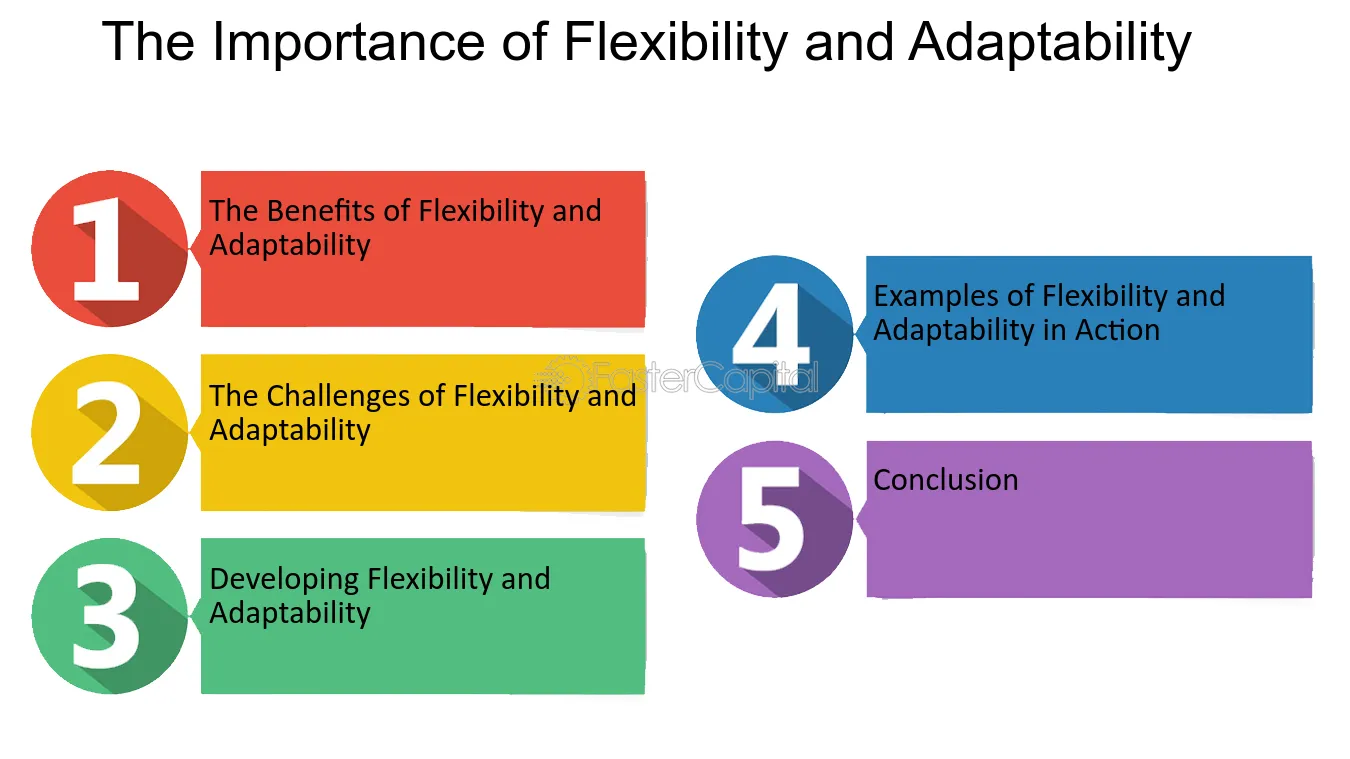Importance of Adaptability. From technological innovations to shifts in global industries, adaptability has become a vital skill for navigating life and work. It is not just about managing transitions but thriving amid them. Those who develop adaptability can embrace change and transform challenges into opportunities.
Why Adaptability Matters
- Dynamic World
In an era where trends evolve rapidly, the ability to adapt ensures you remain up-to-date with skills and knowledge. It prevents stagnation and opens doors to growth. - Promoting Continuous Development
Change often pushes you out of your comfort zone, encouraging both personal and professional growth. This process strengthens your ability to face new challenges. - Enabling Effective Problem-Solving
Adaptability allows you to think creatively and respond effectively when faced with unexpected obstacles or evolving circumstances. - Building Emotional Resilience
The capacity to adapt fosters mental strength, helping you bounce back from setbacks and maintain focus during times of uncertainty.
Traits of Adaptable People
- Openness to New Ideas
Adaptable individuals welcome diverse viewpoints and are willing to consider alternative solutions, making them more innovative and effective in decision-making. - Emotional Regulation
They remain composed and maintain clarity, even during stressful situations, which aids in managing transitions smoothly. - Flexibility in Actions
Being willing to pivot strategies or approaches as needed is a hallmark of adaptability, whether it’s in the workplace or personal life. - Commitment to Learning
Adaptable people are lifelong learners, continuously seeking knowledge and skills to stay prepared for future demands.
Benefits of Being Adaptable

- Advancement in Career and Business
Employers value individuals who can quickly adjust to new tools, roles, or market conditions. Entrepreneurs who embrace adaptability can pivot strategies to seize emerging opportunities. - Stronger Interpersonal Relationships
Flexibility in understanding others’ perspectives strengthens communication and fosters deeper connections. - Boosted Self-Confidence
Successfully adapting to change builds self-assurance, reinforcing your belief in your ability to handle future uncertainties.
Developing Adaptability
- Cultivate Curiosity
Staying curious about the world around you keeps your mind active and receptive to new ideas. Read, explore, and engage in continuous learning to expand your knowledge. - Welcome Change as a Positive Force
Instead of resisting, view change as an opportunity to grow. Each shift, no matter how challenging, carries lessons and potential. - Adopt a Growth Mindset
Believe in your capacity to improve through effort and learning. This mindset makes you more open to feedback and encourages perseverance. - Practice Stress Management
Learning techniques like mindfulness or deep breathing can help you remain calm and focused when navigating change. - Seek Constructive Feedback
Feedback provides valuable insights into areas where you can adapt and improve, making it easier to adjust effectively to new situations.
Adaptability Across Life’s Spheres
- In Careers
The workplace is undergoing constant transformation due to technological advancements and globalization. Adaptability ensures employees remain competitive and capable of tackling new challenges. - In Personal Life
Life’s unexpected twists, whether in relationships, health, or finances, require flexibility. Adaptable individuals are better equipped to handle these transitions with grace. - In Education
With evolving teaching methods and subjects, adaptability is key for students to excel. Embracing digital tools and new learning strategies can significantly enhance their academic performance. - In Entrepreneurship
Entrepreneurs face shifting market demands and unexpected challenges. Adaptability enables them to adjust strategies, meet customer needs, and innovate effectively.
Table of Contents
The Role of Technology in Driving Adaptability
As of 2025, technology continues to shape the need for adaptability. Being tech-savvy and open to learning new digital tools is more crucial than ever.
- Automation and Artificial Intelligence
Many traditional tasks are being automated. Learning to leverage AI tools and integrating them into workflows is now a vital skill. - Remote Work and Virtual Collaboration
Hybrid work environments demand adaptability in communication and team management across digital platforms. - Continuous Digital Transformation
Businesses increasingly rely on technology. Staying adaptable helps individuals and companies embrace tools that enhance efficiency and productivity.
Examples of Adaptability in Action
- Business Success Stories
Transitioning from DVD rentals to a global streaming platform showcased their ability to pivot effectively. - The COVID-19 Pandemic
The pandemic highlighted the importance of adaptability. Individuals and organizations quickly adjusted to remote work, online learning, and evolving safety measures, showcasing resilience in the face of global challenges.
Final Thoughts: Importance of Adaptability
Adaptability is no longer optional; it is a necessity in today’s fast-changing world. By embracing flexibility, maintaining a growth mindset, and being open to continuous learning, you can turn uncertainty into a stepping stone for success.
In every aspect of life—work, education, or personal growth—the ability to adapt empowers you to thrive in a dynamic environment. Those who master this skill are better equipped to seize opportunities, overcome obstacles, and shape a successful future.


